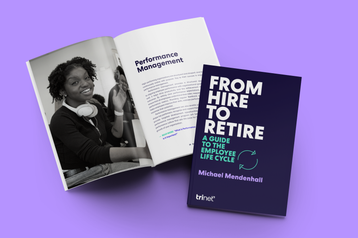Small Business Recruitment Agencies vs. In-House Recruiters: Pros and Cons

Table of contents
- 1.What is a Recruitment Agency?
- 2.Advantages of Using a Recruitment Agency
- 3.Access to a Large Talent Pool
- 4.Saves Valuable Time and Resources
- 5.Access to Expertise and Specialization
- 6.Confidentiality with Hires
- 7.Drawbacks to Outsourcing the Recruitment Process
- 8.Recruitment Costs and Fees
- 9.Less Control Over the Hiring Process
- 10.Potential to Misalign with the Company's Values and Culture
- 11.Limited Industry Knowledge
- 12.What is In-House Recruitment?
- 13.Advantages of an In-House Hiring Process
- 14.Strong Alignment with the Company's Culture
- 15.Can Be More Cost-Effective
- 16.Full Control Over the Hiring Process
- 17.Stronger Employer Branding
- 18.Drawbacks to Using an In-House Recruiter
- 19.Limited Talent Pool
- 20.More Time-Consuming
- 21.More Resource-Intensive
- 22.Lack of Industry Expertise
- 23.Can Be More Expensive
- 24.Less Candidate Confidentiality
- 25.Work with a Professional Employer Organization for Recruitment Tools
Recruiting the right talent is critical to the success of any small to medium-sized business (SMB). However, choosing between outsourcing the recruitment process and relying on an in-house team can significantly impact your company's growth, culture and bottom line. To help you choose the right fit for your SMB, we'll go over the pros and cons of recruitment agencies vs. in-house recruiters.
What is a Recruitment Agency?
Recruitment agencies are third-party organizations that specialize in helping businesses find qualified candidates to fill open positions. They offer various services, including screening and interviewing candidates, conducting background checks and negotiating wages. Agency recruiters tend to work with all industries and offer help whether your company needs to fill a temporary or permanent position. A good recruitment agency will also have established networks and the skill sets to help small businesses find top-notch candidates.
Advantages of Using a Recruitment Agency
Whether you need temporary staffing or permanent employees, the hiring efforts can be time-consuming and draining. That's why many SMBs look into outsourcing the recruitment process. Some of the most notable benefits of partnering with an external recruitment agency include the following:
Access to a Large Talent Pool
The job market for businesses is usually limited to online listings posted on an online job posting platform. This can make it difficult to recruit the best candidates for open positions.
Recruitment agencies have access to a much larger pool of potential candidates for different industries, making it easier to find the right candidates for the role. With some background knowledge, an agency can help you find the right fit for your company's needs, especially within niche sectors.
Saves Valuable Time and Resources
Finding the right talent may require a significant time investment. However, this can take even longer if you don't have the time or resources to commit to finding strong candidates. Working with a recruiter may seem costly, but they take care of many of the talent acquisition steps from start to finish. This can streamline your hiring process and save valuable time and resources.
Recruitment often involves the following tasks, all of which would be outsourced to the recruitment agency:
- Screening a range of candidates
- Performing background checks
- Communicating with potential candidates
- Identifying candidates to recommend for permanent placement
- Scheduling and conducting interviews
- Onboarding
Access to Expertise and Specialization
Recruiters work to find the best fit for the company's long-term goals. They're experts at what they do, as it's their expertise area. Many agencies offer talent acquisition for a range of industries with individual specializations to help small to medium-sized businesses succeed. Recruiters understand the current market trends, how to identify good qualities in an employee, and industry insights, making them a qualified option when filling open roles.
Confidentiality with Hires
Agencies also tend to exercise a high level of discretion when screening candidates for certain roles. This can help keep the candidate's personal information private until hiring decisions are made. Not all roles require these levels of confidentiality, but recruiters typically take safeguarding measures regardless.
Drawbacks to Outsourcing the Recruitment Process
It's also important to consider some of the disadvantages that may accompany working with a recruiting agency. The most notable include the following:
Recruitment Costs and Fees
The most notable drawback for many SMBs is the associated costs and fees that recruitment agencies typically charge. In some positions, the charge is a percentage of a new employee's base annual pay. A flat fee may be charged for all hiring needs in other situations. Discussing these costs upfront before moving forward with a partnership is important. Organizations with limited budgets may find that the fees are high, but it's still beneficial to consider the return on investment compared to the cost of an in-house recruiter.
Less Control Over the Hiring Process
When you outsource different types of recruitment, you tend to relinquish control to the professionals. This can relieve some SMBs, while others may not like the lack of involvement in the recruiting process. Each agency has a different process, so open communication regarding your needs is recommended. Some agencies work closely with internal management, while others only introduce candidates who meet all requirements.
Potential to Misalign with the Company's Values and Culture
Understanding a company's culture can take some time, and it might not be the biggest priority among agencies. Some agencies may also focus on technical skills rather than whether candidates are a cultural fit. Again, communicating what you're looking for is essential when working with an outside recruitment agency.
Limited Industry Knowledge
Finally, working with a particular agency may lead to a lack of industry knowledge. Some agencies focus on a wide umbrella of industries, lacking individualized expertise. While this isn't always the case, doing your due diligence before signing any contracts is important.
What is In-House Recruitment?
In-house recruiters work for your company and are on your payroll. They're typically part of our HR team or, in the case of some small businesses, may carry out the entire HR role independently. They receive wages and company benefits and tend to work with department heads to help fill candidates across different positions within the business.
Advantages of an In-House Hiring Process
There are some notable advantages to having an internal employee who handles hiring and onboarding. These include the following:
Strong Alignment with the Company's Culture
Internal staff who have gone through onboarding and been a part of your company tend to have a much stronger understanding of your company culture and values. This can make it easier to find a good long-term fit who meets both the skillset and the values that your SMB upholds.
Can Be More Cost-Effective
An internal team may be more cost-effective for some organizations. For example, if you're actively seeking new hires for a growing company, having someone on payroll will optimize your budget. The annual pay for that person would typically be less than the commission from new hires if you need to hire four to five (or more) new employees in a given year.
Full Control Over the Hiring Process
Some businesses also like to be involved in the hiring process, which makes an internal recruiter a better option. Of course, this also means you'll need to invest more time and resources, but some SMB owners prefer that over hiring someone they haven't vetted as much.
Stronger Employer Branding
Employer branding is an important part of company culture and long-term employee experience. When you have an internal recruitment team, you have more control over creating a strong employer brand from the start. This can also help you find more qualified candidates who resonate with your company's overall mission and values, which is great for retention.
Drawbacks to Using an In-House Recruiter
Some of the drawbacks of hiring full-time staff for internal recruitment include the following:
Limited Talent Pool
One of the biggest limitations of in-house recruitment is the potential for a limited talent pool. In-house recruiters often rely on their networks and databases, which may not be as extensive as those accessed by specialized recruitment agencies. This can result in fewer candidates to choose from, potentially missing out on top-tier talent that an external recruiter might have connections to.
More Time-Consuming
Managing recruitment internally can be quite time-consuming. In-house recruiters have to juggle multiple responsibilities, from crafting job descriptions and posting vacancies to screening candidates and conducting interviews. This process can be particularly taxing for small HR teams or those with additional HR duties, leading to slower hiring times and increased workload for existing staff.
More Resource-Intensive
An internal recruitment process often requires significant resources. These include the wages and benefits for in-house recruiters and the costs associated with recruitment tools, software and training. Smaller businesses might find allocating sufficient resources to maintain an effective internal recruitment team challenging.
Lack of Industry Expertise
In-house recruiters, especially in smaller companies, may not have the specialized industry knowledge that certain roles demand. This can be a drawback when filling highly technical or niche positions.
Can Be More Expensive
While in-house recruitment can be cost-effective in some scenarios, it can also become more expensive in others. This is particularly true if your company has fluctuating hiring needs. During periods of low recruitment activity, the cost of maintaining an in-house recruiter may outweigh the benefits, whereas agencies can offer more flexible, on-demand services.
Less Candidate Confidentiality
Confidentiality can be a concern with in-house recruitment, particularly for high-profile or sensitive roles. External agencies can provide anonymity and discretion, which might be harder to achieve internally. This is crucial when replacing an existing employee or recruiting for a strategic position without alerting competitors or the market.
Work with a Professional Employer Organization for Recruitment Tools
Several staffing agencies have the sole job of finding full-time employees, but their roles tend to end there. If you're going to outsource, professional employer organizations (PEOs) like TriNet can help you get the most out of your investment. TriNet offers full-service HR solutions to SMBs across various industries, from talent and organizational consulting to access to competitive benefit packages to help attach top talent. Also, TriNet provides a recruitment tool designed to help you efficiently manage steps in the recruiting process, making it faster and easier to find candidates.

TriNet Team
Table of contents
- 1.What is a Recruitment Agency?
- 2.Advantages of Using a Recruitment Agency
- 3.Access to a Large Talent Pool
- 4.Saves Valuable Time and Resources
- 5.Access to Expertise and Specialization
- 6.Confidentiality with Hires
- 7.Drawbacks to Outsourcing the Recruitment Process
- 8.Recruitment Costs and Fees
- 9.Less Control Over the Hiring Process
- 10.Potential to Misalign with the Company's Values and Culture
- 11.Limited Industry Knowledge
- 12.What is In-House Recruitment?
- 13.Advantages of an In-House Hiring Process
- 14.Strong Alignment with the Company's Culture
- 15.Can Be More Cost-Effective
- 16.Full Control Over the Hiring Process
- 17.Stronger Employer Branding
- 18.Drawbacks to Using an In-House Recruiter
- 19.Limited Talent Pool
- 20.More Time-Consuming
- 21.More Resource-Intensive
- 22.Lack of Industry Expertise
- 23.Can Be More Expensive
- 24.Less Candidate Confidentiality
- 25.Work with a Professional Employer Organization for Recruitment Tools





